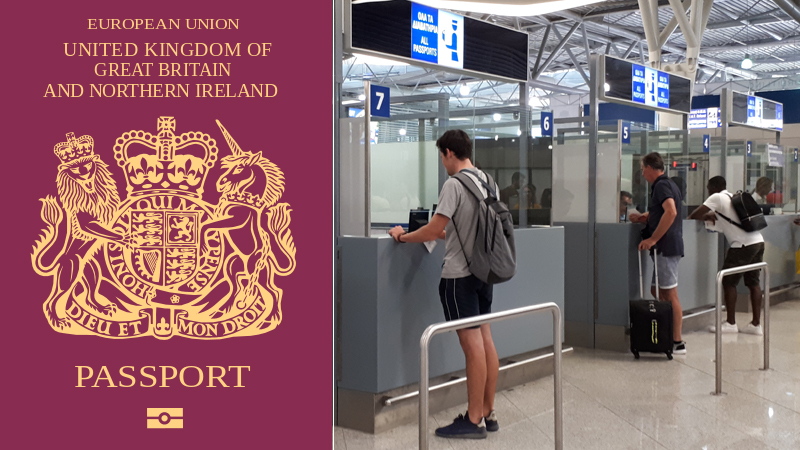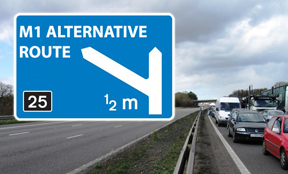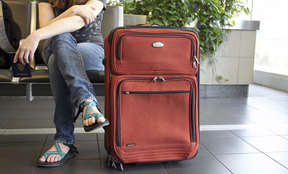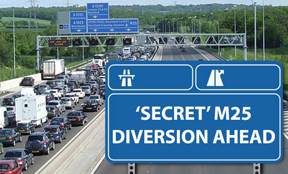
If you're an English driver planning to take your electric car to France, it's important to familiarise yourself with the electric vehicle (EV) charging infrastructure on French autoroutes.
The good news is that autoroute operators have been steadily increasing the number of charging points over the past few years as the ban on petrol and diesel motors gets closer.
Here motoring journalist and expert Pete Barden looks at what British EV drivers heading to France will need to know…
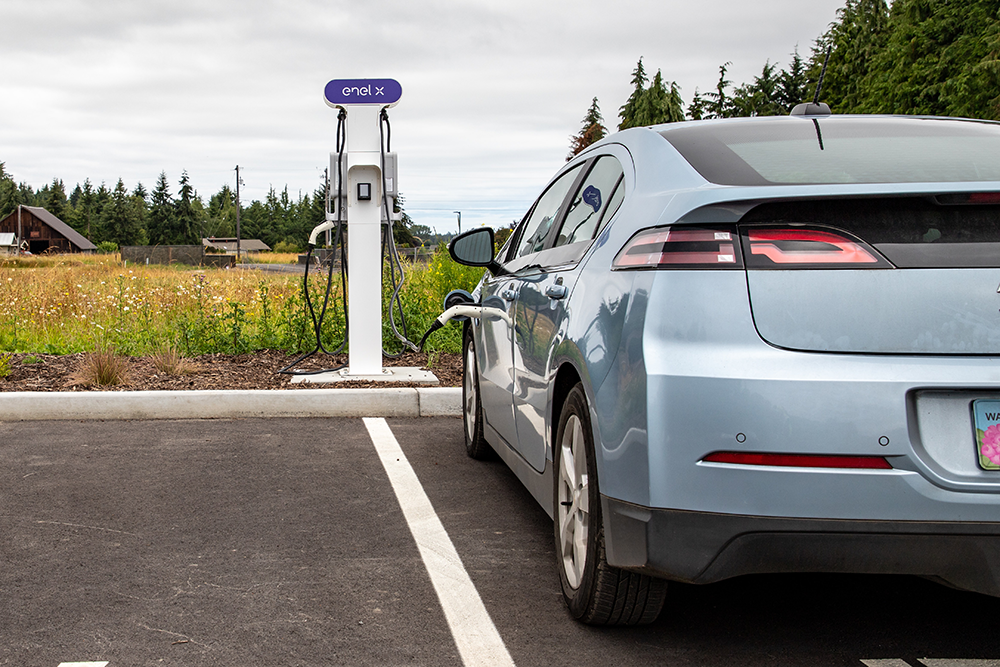 Heading over the English Channel to
France with your EV? Here is your guide to charging on your trip. (Photo: Pexels.com)
Heading over the English Channel to
France with your EV? Here is your guide to charging on your trip. (Photo: Pexels.com)
-
TABLE OF CONTENTS
-
How many service stations have EV chargers?
-
How close will EV chargers be on French autoroutes?
-
Is there high demand for public EV chargers?
-
How much do public EV chargers cost to use?
-
Will there be more charge points coming soon?
-
Will there be enough EV chargers in France and Europe?
-
Find a map of EV chargers in France
How many service stations have EV chargers in France?
An official map from the trade body ASFA, released in June 2022, showed that 97% of autoroute service areas now have chargers for EV drivers to use.
By mid‑2025, 265 motorway service stations across France had been fitted with high-power EV chargers, providing around 1,800 ultra-fast charging points.
Operated by TotalEnergies, the rollout marks a major step forward in the country’s transition to electrified motorway infrastructure.
Overall, March 31, 2025, France had 163,656 public EV charging points — a 29% rise year-on-year. The figures come from a barometer compiled by Avere-France and the Ministry of Ecological Transition using Gireve data.
Fast-Charging Points (150 kW+) rose by 58% year-on-year, growing from 19,848 in February 2024 to 31,335 in February 2025 .
How close will the nearest EV charger be on French autoroutes?
With more than 800 individual posts spread across 265 autoroute service stations, most of which offer quick charges of up to 150kW, UK drivers can find a charger approximately every 80 kilometres along the autoroutes.
The fast charging stations help cut waiting times and allow drivers to recharge their vehicles to around 80% in as little as 15 minutes.
Is there high demand for public EV chargers?
In France, the majority of electric car buyers invest in domestic wall box chargers for their homes.
These private charging stations supply more than 90% of the electricity used to charge EV batteries.
As a result, public charging points are often less busy, except during peak holiday seasons when millions of French drivers all hit the road at the same time.
How much do public EV chargers cost to use?
Research from French motoring magazines has found that electricity from public charging points can be more expensive per kilometre than the price of diesel for the same. Make sure you check the price before you start charging.
Latest electric car motoring news and guides
Take a look at more of our top motoring-related content here...
-
TOP EVS FOR BRITS: What is the most popular electric car (EV) for UK buyers
-
DRIVE EASY: What is one pedal driving for EV drivers
-
ELECTRIC LICENCE TO DRIVE: Do I need an electric car licence and driving test in the UK?
-
E-SCOOTER LAWS: Are electric scooters Legal in the UK now? When is the law changing?
-
CHARGE AND DRIVE: Electric car charging points at UK airports for public use
Will there be more charge points coming soon?
The French government remains committed to expanding the public charging infrastructure, especially in light of the upcoming ban on new petrol and diesel cars by 2035.
To support this initiative, the government has allocated €10 million in aid to assist small rural service stations in purchasing electric chargers, covering between 60% and 70% of installation costs.
While EV sales in Europe continue to rise, governments and industry bodies are clear about the need for the accelerated installation of electric car chargers.
Are there be enough EV chargers in France and Europe?
According to European car makers' trade body The European Automobile Manufacturers' Association, or ACEA, only 2,000 chargers are being installed across Europe each week, whereas an estimated 14,000 chargers per week are required to ensure a smooth transition to the 2035 ban on internal combustion engine sales.
Find a map of EV chargers in France
Drivers can use this Chargemap finder to see where the nearest EV chargers are in France, to help them plan their route across the country this summer.
READ MORE ON DRIVING IN FRANCE
Take a look at more of our top motoring-related content here...
-
SIGN OF THE TIMES: Find out what a white diamond sign means in France
-
BEWARE: Find out the drink and drug driving rules for France
-
SPEED TIPS: Do I get points on my licence if caught speeding in France?
-
SECRET SPEED CAMERAS: Look out for undercover speed camera cars
-
GET YOUR FILL: Interactive map to find the cheapest petrol stations near you in France
-
PERMIT TO DRIVE: Find out why you may need an International Driving Permit for France
-
TRAFFIC WIN: Skip Paris ring road gridlock with the A86 Duplex Tunnel
Here's a quick checklist for UK drivers planning to drive in France
| Item | Required? | Notes |
|---|---|---|
| Full UK Driving Licence | ✅ Yes | Both paper and photocard if applicable |
| Vehicle V5C logbook or VE103 | ✅ Yes | Proof of ownership – more on VE103 |
| Valid Insurance (with EU cover) | ✅ Yes | Check with your provider for confirmation |
| Passport | ✅ Yes | Must be valid for at least 3 months after return |
| Travel Insurance | 🔲 Advised | Helps cover unexpected medical or trip issues |
| MOT certificate | ✅ Yes | For vehicles over 3 years old – check your renewal date |
| Reflective jackets (one per occupant) | ✅ Yes | Must be within reach (not in the boot) |
| Warning triangle | ✅ Yes | Legally required |
| Headlight beam deflectors | ✅ Yes | Required even for LED lights |
| UK sticker/identifier | ✅ Yes | Needed unless UK plates have Union Jack |
| Spare bulb kit | 🔲 Advised | Not a legal requirement but useful |
| Breathalyser kit | 🔲 Advised | Not enforced, but still recommended |
| Sat nav without speed camera alerts | ✅ Yes | Disable alerts for camera locations |
| Credit/debit card or cash for tolls | ✅ Yes | Many motorways are tolled |
| Emission sticker (Crit’Air) | 🔲 Sometimes | See more on Crit'Air here |
| Drive on the right-hand side | ✅ Yes | Pay extra attention at roundabouts |
| Speed limits adjust in wet weather | ✅ Yes | Limits drop – always check signs |
| Drink and drug driving rules | ✅ Yes | Strict rules apply |
| No use of hands-free earpieces/headphones | ✅ Yes | Illegal to use in France |
| European Breakdown Cover | 🔲 Advised | Very useful if you break down abroad |
| Paper map or offline GPS | 🔲 Advised | Helpful in rural areas with poor signal |
| EHIC/GHIC card | 🔲 Advised | Free or reduced-cost state medical care in EU |
MORE MOTORING NEWS
Take a look at more of our top motoring-related content here...
-
CAR TAX SHOCK: How much is my car tax going to go up by?
-
CAN I STILL DRIVE?: My driving licence has expired - can I keep driving while I wait for a new one?
-
DRIVERS IN 20MPH PERIL: How fast in a 20mph zone will get a speeding ticket in London
-
TOP EVS FOR BRITS: What is the most popular electric car (EV) for UK buyers
-
TESTING TIMES: Can I book cancelled driving tests to beat the rush?
-
M25 JAM BUSTER: M25 alternative routes
-
SECRET PARKING FINES: Secret parking offences you're committing but don't realise
-
SUNGLASSES SHOCK: Are my sunglasses legal for driving - how to check instantly?
-
NUMBER PLATES EXPLAINED: How old is a car by its number plate? Full list
-
SPEEDING TICKET CHECK: Will I always get a speeding ticket after being flashed
-
AVOID POINTS: Will I get a speed awareness course instead of points?
-
DRIVING ABROAD DOCUMENTS: Do I need an international driving permit for France, Spain, Greece and more
-
WHITE LINES EXPLAINED: What are the rules around double white lines and the risk of £1,000 fine?
-
BRUM: DEAL Do I pay the Birmingham Clean Air Zone at weekends?
-
GOT YOUR NUMBER: What does my driving licence number reveal about me?
-
FAKE COP SHOCK: How to spot a fake undercover police car
-
ELECTRIC LICENCE TO DRIVE: Do I need an electric car licence and driving test in the UK?
-
VAPE RULES: Can I vape in a car with kids in it?
-
LICENCE TIMES: When can I apply for a provisional licence?
-
E-SCOOTER LAWS: Are electric scooters Legal in the UK now? When is the law changing?
-
SLIDERS MUST-KNOW: Can I drive in sliders in the UK?
-
DOT CHECK: What are the black dots on my windscreen for?
-
CAR TRACKER: How can I find out who owns a car
-
CHARGE AND DRIVE: Electric car charging points at UK airports for public use
-
TYRE-CHECK TOOL: How old are my tyres - find out instantly here
-
CAR FUTURE: What happens to a car when the owner dies?
-
SPARE WHEEL RULES: How far and how fast can I drive on a space saver spare wheel
-
TICKET RISK: Can I be fined if the car park ticket machine is not working?
-
M6 JAM BUSTER: Is the M6 Toll Road free in the evening and at weekends?
-
PAY OR NOT PAY: How much is the Tamar Bridge toll and when do I need to pay it?
Subscribe for free motoring and travel news here - support independent journalism
Author: Pete Barden:
Twitter: @pete_barden
Pete Barden is a qualified journalist who has written and produced for publications including The Sun (thesun.co.uk), New Statesman Media Group, Whatcar? (Whatcar.com) Stuff Magazine (Stuff.tv), Fastcar Magazine (Fastcar.co.uk), Maxim Magazine and UK broadcast stations within the Heart network (Formerly GCAP). Pete specialises in motoring and travel content, along with news and production roles. You can find out more about Pete Barden on LinkedIn.






